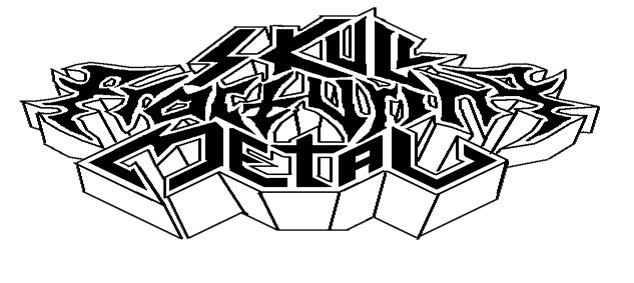Metal Church is a band that I’ve struggled to keep up with.
Their first two albums are all-time classics, and I still revisit them
regularly, but they have a relatively vast discography, and after a recent
break-up, I sort of forgot about them for a bit. But now the band has reformed
and put out a new album, and it is definitely impressive. The record begins
with the energetic “Bulletproof”, and while the main riff is by no means original or
inventive, it brings you back to the good old days of heavy metal. The second
Ronny Munroe’s vocals come in, you will be sold (assuming you had never heard
him before). This guy is in the upper echelon of metal vocals; he has the
perfect amount of rasp to compliment his singing ability. It adds a dimension
to the music that makes the band sound like they’re out to prove something. David
Wayne cannot be replaced, but Munroe does a fantastic job singing in Metal
Church.
Aside from the opener, there are quite a few inspired tracks
here as well. You’ll find yourself regularly revisiting “Dead City”, “Jump The
Gun”, and “Hits Keep Comin’”, among others. The music is pretty accessible for
metal, but that’s why it’s so effective. “Generation Nothing” is just a
collection of great songs created by some veterans of the scene. “Dead City” is
a great example of a common riff style on the album. Guitarist Kurdt
Vanderhoof chugs along through the verse, until the end of each section where
there are some heavy rhythmic accents. It’s a far cry from the speed metal of
“Beyond The Black”, but good nonetheless. The area where Vanderhoof has not
lost a step is in his shredding. In the old days, it felt a bit less
restrained, but this newer tighter style compliments the change in the music on
“Generation Nothing” compared to the prior records. The title track has a vocal line that brings
me back to an Overkill song (though I cannot quite recall which one), but it
might be because on this song, Munroe genuinely sounds like Bobby Blitz. He
does this both through his normal singing voice, and through using a bit of a
higher pitched scream (the end of the chorus has a great example).
Overall, it’s pretty hard to be dissatisfied with “Generation
Nothing”. Though I can’t speak to the quality of most of Metal Church’s recent
releases, this one is very solid. It certainly has convinced me to go seek out
the rest of their discography that I’m missing. If you dig old-school, fun
traditional/speed metal, it’s time to take a look back to one of the genres
originators: Metal Church.
Highlights
"Bulletproof"
"Dead City"
"Hits Keep Comin'"
Final Rating
4.3/5 or 86%.







